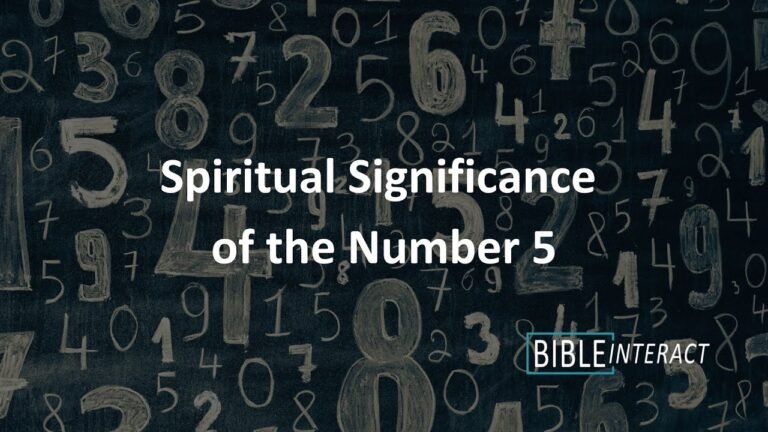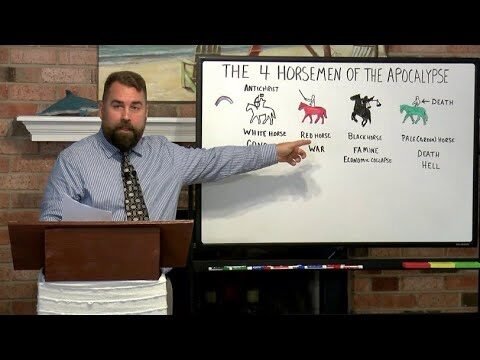Biblical Prophecies of Animal Attacks
In a world where nature often mirrors the turmoil of human existence, intriguing predictions emerge from ancient texts, particularly the Bible. Throughout its pages, there are compelling verses that suggest a future where animals may rise against humanity, reflecting a profound shift in the balance between man and the natural world. As we explore these prophetic insights, we delve into the potential implications and warnings embedded in these scriptures, urging us to reconsider our relationship with the animal kingdom and the environment we share.
When does the Bible say that animals will attack humans?
In times of great distress, the Bible paints a vivid picture of a world turned chaotic, where famine and strife give rise to desperate circumstances. Ezekiel 5:17 illustrates this turmoil, warning that wild animals will become a threat, preying not only on the vulnerable but also robbing families of their children. This dire prophecy reflects the broader themes of disease, war, and the looming presence of danger, highlighting a stark reality where nature itself turns against humanity amidst the chaos of war and suffering.
What is God’s perspective on animal abusers?
God’s perspective on animal welfare is rooted in compassion and stewardship. The scriptures highlight that a righteous person demonstrates care and responsibility towards all living beings. Proverbs 12:10 emphasizes this by stating that a righteous man looks after the needs of his animals, contrasting this with the cruelty often exhibited by the wicked. This distinction serves as a reminder of the moral obligation humans have towards animals, reflecting God’s character of kindness and care.
Furthermore, the Bible illustrates that God’s creation is worthy of respect and protection. Through various passages, it becomes clear that neglect or abuse of animals contradicts the divine intent for harmony in creation. By promoting kindness and responsible treatment, God calls us to reflect His goodness in our interactions with all creatures, ensuring that we honor the life He has entrusted to us.
What does the Bible say will happen to animals?
According to biblical teachings, all creatures, including animals, have a role in praising the Lord. This idea suggests that just as humans are called to believe in God, animals too express their existence through worship. The notion that “whoever believes in Him should not perish but have eternal life” implies a profound connection between creation and the Creator, extending beyond humanity.
This belief leads to the comforting thought that animals will be reunited with their Creator in heaven. The promise of eternal life, as highlighted in John 3:16, offers hope not only for humans but for all of God’s creations. Thus, many find solace in the idea that the love and grace of God encompass every living being, ensuring that animals will share in the joys of eternal life alongside their human companions.
Unveiling the Beast: Prophetic Visions of Animal Fury
In a world where nature’s raw power collides with human existence, prophetic visions of animal fury emerge as a stark reminder of our primal connections. These vivid manifestations, often depicted in folklore and art, unveil the fierce beauty and untamed spirit of the animal kingdom, urging us to confront the consequences of our actions. As we stand on the brink of ecological crisis, these visions call for a deep reflection on our relationship with the earth and its creatures, igniting a sense of urgency to protect what remains of the wild. Ultimately, they serve as a warning: the beast within nature, and within ourselves, cannot be ignored.
Nature’s Wrath: Biblical Insights into Animal Encounters
Throughout history, biblical texts have illustrated the powerful relationship between humanity and the animal kingdom, often depicting encounters that reflect divine messages or moral lessons. From the great flood, where Noah saved pairs of each creature, to the awe-inspiring visions of beasts in prophetic dreams, these narratives serve as reminders of nature’s might and the responsibility humans bear toward creation. Such stories highlight the interconnectedness of all living beings, suggesting that animals are not merely passive participants but active players in the unfolding of divine will.
As we navigate the complexities of modern life, these ancient insights resonate with contemporary concerns about environmental stewardship and the ethical treatment of animals. Instances of nature’s wrath, whether through storms, wildfires, or unexpected animal behavior, urge us to reconsider our role within the ecosystem and reflect on the consequences of our actions. By acknowledging the lessons embedded in these biblical encounters, we can cultivate a deeper respect for the natural world and strive to live harmoniously within it, recognizing that every creature plays a part in the grand tapestry of life.
Predators of the Past: Prophecies of Divine Animal Assaults
Throughout history, the fear of divine animal assaults has woven itself into the fabric of human culture, igniting imaginations and inspiring myths. Ancient texts and folklore speak of majestic beasts, from colossal serpents to vengeful wolves, believed to be sent by deities as omens or punishments. These narratives reflect humanity’s struggle against nature’s unpredictable fury and the moral lessons embedded in our relationships with the animal kingdom. As civilizations rose and fell, the stories of these predators evolved, serving as both cautionary tales and reflections of our deepest anxieties about power, survival, and the unknown. Today, the echoes of these prophecies remind us that while the physical threats may have changed, the primal fears and reverence for the wild remain deeply ingrained in our collective psyche.
Sacred Struggles: The Role of Animals in Biblical Predictions
Throughout biblical narratives, animals often emerge as powerful symbols, embodying deeper spiritual truths and prophetic insights. From the majestic lion representing courage and strength to the humble lamb symbolizing sacrifice and redemption, these creatures serve as conduits for divine messages. Their roles in scripture highlight not only the interconnectedness of all creation but also the profound lessons humanity can glean from observing the natural world.
In prophetic literature, animals frequently appear as harbingers of significant events or changes. For instance, the four living creatures in the Book of Revelation—each representing distinct aspects of God’s creation—illustrate the complexity and richness of divine revelation. Such imagery encourages believers to reflect on the moral and spiritual implications of their actions and the world around them. These sacred struggles often prompt individuals to confront their own nature and responsibilities within God’s creation.
Moreover, the presence of animals in biblical predictions serves to remind us of the cyclical nature of life and the importance of stewardship. As humanity grapples with contemporary issues such as environmental degradation and ethical treatment of animals, the lessons from scripture resonate with urgency. The sacred struggles depicted through these creatures invite a deeper awareness of our role in nurturing and protecting the world, emphasizing that our journey is intertwined with that of all living beings.
The intriguing notion that the Bible predicts a time when animals will turn against humanity invites reflection on our relationship with the natural world. As we navigate the complexities of modern life, this ancient text serves as a poignant reminder of the interconnectedness of all creation. Whether seen as a metaphor or a prophetic warning, it challenges us to consider our stewardship of the earth and its creatures, urging a deeper awareness of the balance we must maintain to foster harmony and prevent the chaos foretold in scripture.







